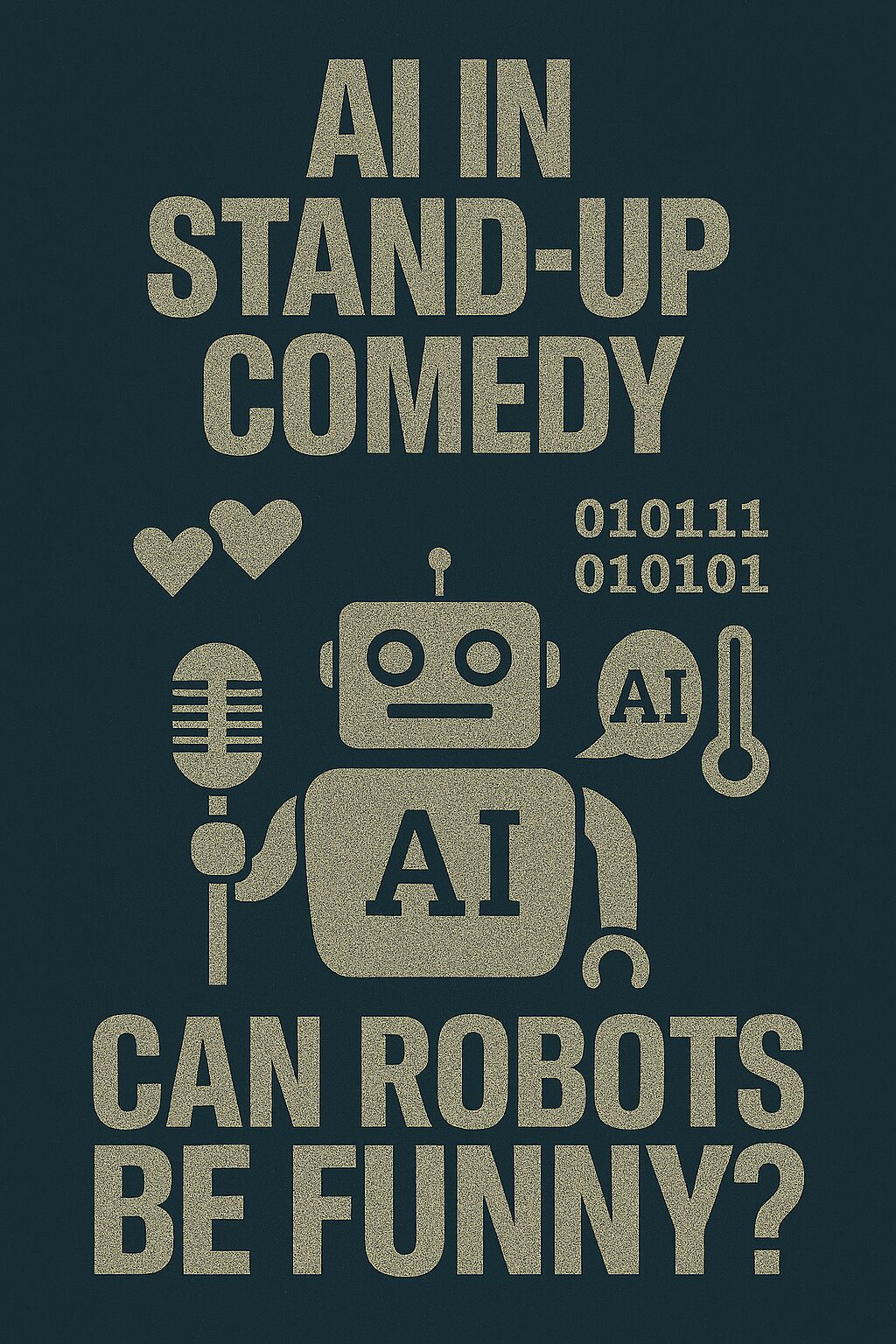Introduction: When Algorithms Take the Mic
Stand-up comedy has always been a human art—raw, unpredictable, and deeply emotional. But in 2025, artificial intelligence is stepping into the spotlight. From joke generation to crowd analysis, AI is learning the rhythms of humor and testing its comedic chops on stage. The question isn’t just “Can robots be funny?”—it’s “Can they make us laugh for the right reasons?”
🧠 What Is AI-Powered Stand-Up Comedy?
AI in stand-up comedy uses natural language processing, machine learning, and sentiment analysis to craft and deliver jokes. These systems are trained on:
- 📚 Massive datasets of stand-up routines, punchlines, and comedic timing
- 🗣️ Audience feedback and laughter patterns
- 🎭 Cultural references and linguistic nuances
- 📊 Real-time crowd sentiment tracking
- 🎙️ Voice synthesis and performance modeling
According to , AI-generated jokes are now being tested in comedy clubs, with mixed but promising results.
📈 How AI Is Reshaping Comedy in 2025
| AI Feature | Impact on Stand-Up Comedy |
|---|---|
| 🧠 Joke Generation | Creates punchlines based on audience demographics and trending topics |
| 📊 Crowd Sentiment Analysis | Tracks laughter, silence, and emotional response in real time |
| 🗣️ NLP Humor Modeling | Mimics comedic timing and delivery style |
| 🎙️ AI Performance Simulation | Synthesizes voice and gestures for stage presence |
| 📱 Feedback Loop Optimization | Refines jokes based on audience reactions and social media engagement |
Comedians like Jason (featured in AI Tools Explorer) are already blending human delivery with AI-written material, creating hybrid performances that challenge traditional comedy norms.
🧪 Real-World Applications in 2025
- 🤖 AI bots perform short sets at open mic nights using synthesized voices
- 📱 Comedy apps use AI to generate personalized jokes based on user mood
- 🧠 Neural networks analyze viral stand-up clips to learn comedic structure
- 🎭 Writers use AI to brainstorm punchlines and test joke variations
These tools are helping comedians experiment, refine material, and reach new audiences.
⚠️ Challenges and Ethical Considerations
Despite its novelty, AI comedy faces hurdles:
- 🧮 Humor is culturally and emotionally complex—hard for machines to grasp
- ⚖️ Risk of offensive or tone-deaf jokes due to lack of contextual awareness
- 🔐 Privacy concerns from real-time audience data tracking
- 🛠️ Dependence on algorithms may dilute originality and spontaneity
Solutions include human-AI collaboration, ethical joke filters, and diverse training datasets.
🛡️ How to Make AI Comedy Work
✅ Key Strategies:
- Use AI as a writing assistant, not a replacement
- Train models on inclusive, culturally sensitive humor
- Combine human delivery with algorithmic punchline testing
- Monitor audience feedback to refine AI-generated content
- Educate performers on AI tools and ethical boundaries
🔑 SEO Keywords to Target
- AI in stand-up comedy 2025
- can robots be funny
- artificial intelligence joke generation
- machine learning humor modeling
- smart comedy apps
- AI-written punchlines
- crowd sentiment analysis in comedy
🎭 Conclusion: Intelligence Meets Improv
In 2025, comedy isn’t just human—it’s hybrid. AI is learning to be funny, one punchline at a time. While robots may never replace the soul of stand-up, they’re proving that laughter can be engineered—and that the future of comedy is as unpredictable as the next joke.

